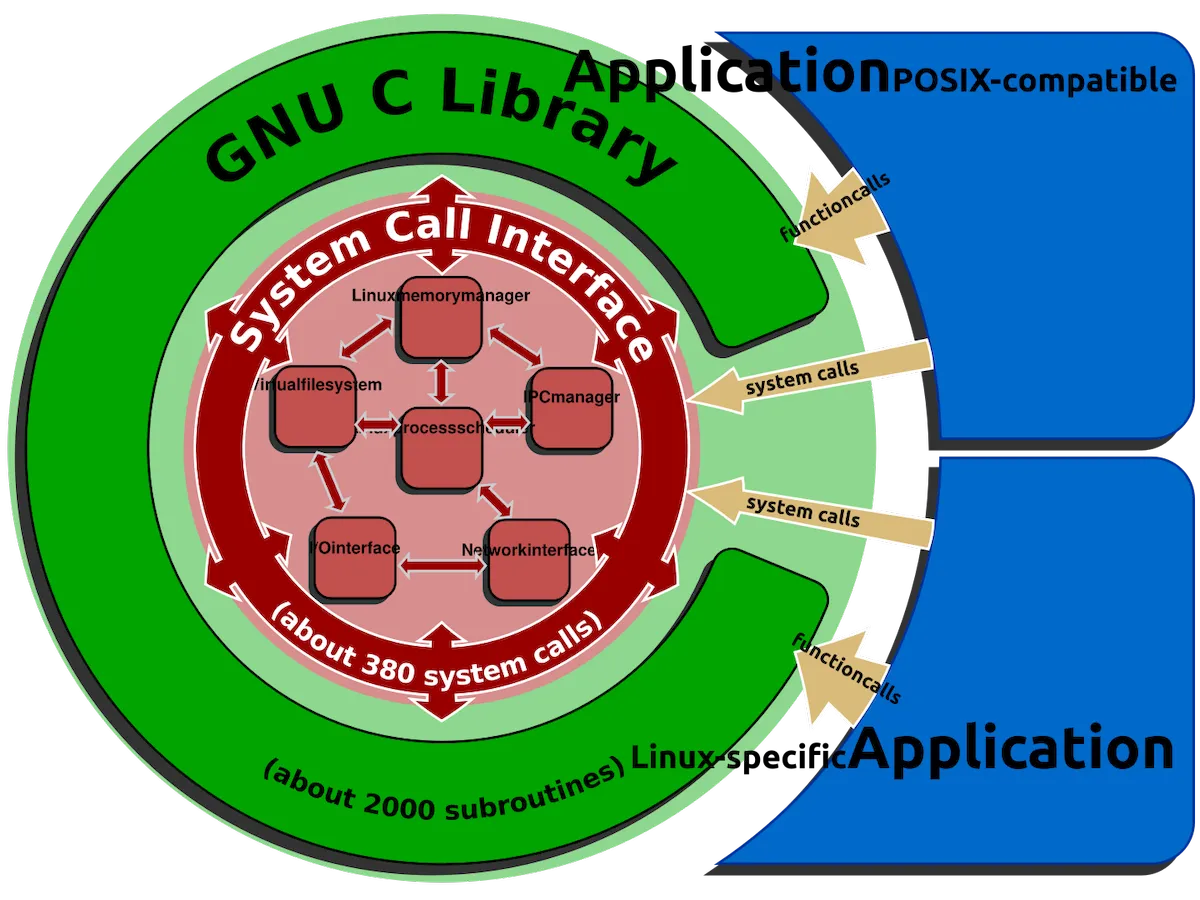Glibc_2.38
Have you ever found yourself trying to run a favorite program, only for it to sputter and stop with a cryptic message about something called ‘glibc_2.38’ missing? It can be a little confusing, can't it? This particular piece of software, the GNU C Library version 2.38, is a really important part of how your computer works, especially if you are using a system that relies on Linux. It’s like a foundational set of instructions that many other programs rely on to do their job, so when there is a mismatch, things can get a bit tricky, you know?
Often, folks run into this kind of snag when they are trying to use a newer application on an older operating system, or perhaps they have copied a program over from a different machine. For instance, someone might be running Kubuntu 22.04 and discover a program wants glibc_2.38, but that version just isn't there yet. It can feel a bit frustrating, as a matter of fact, when you are eager to get something working and hit a wall like that, isn't it?
This article is going to take a closer look at glibc_2.38. We will talk about what it is, where you might find it, and what happens when it causes a bit of a fuss on your system. We will also touch on how you can check what version you have, and perhaps even what it takes to get it working if you are feeling a bit adventurous. Basically, we want to help make sense of this rather important component of your computing setup.
- Ripped Digital Chloe Kreams
- Joell Perry
- Heidi Klum Birthdate
- Tmz Charles Latibeaudiere
- T%C3%A3rk If%C3%A5%C3%BFa Gizli Kamera Sotwe
Table of Contents
- What is Glibc 2.38 Anyway?
- Where Can You Get Glibc 2.38 Packages for Glibc_2.38?
- Why Does Glibc 2.38 Matter for Your System?
- When Things Go Wrong- Glibc 2.38 Issues with Glibc_2.38
- How Do You Check Your Glibc 2.38 Version?
- What About Compiling Glibc 2.38 From Scratch? Getting Glibc_2.38 Yourself
- What Are the Building Blocks for Glibc 2.38?
- Is Glibc 2.38 Free to Use? Licensing Glibc_2.38
What is Glibc 2.38 Anyway?
The GNU C Library, often just called glibc, is a really fundamental piece of software that makes your computer work. Think of it like the main instruction book for your operating system, especially for systems that run on Linux. It provides all the basic services that programs need to do their thing, such as managing memory, handling files, and working with dates and times. So, when we talk about glibc version 2.38, we are talking about a specific, updated edition of this very important collection of code. This particular version, 2.38, has been made available, bringing with it various updates and improvements that developers have been working on. It's a bit like getting a fresh set of tools for a workshop, you know?
Many systems, including the GNU system itself and a wide array of GNU/Linux setups, depend on this library as their core C library. It’s also used by many other systems that use Linux as their central part. The folks who create glibc have a couple of main goals in mind: they want it to be something that can run on lots of different kinds of computer hardware and to perform its tasks really well. This means they put a lot of effort into making it both adaptable and quick, which is pretty cool, if you ask me. It's not just a small piece of code; it's something that nearly everything else on your system relies on to function properly, so its overall quality really matters.
There are discussions and forums dedicated to glibc, and specifically glibc_2.38, where users can ask for help or share what they have learned. It is worth noting that these discussions often have their own set of guidelines, like rules about how to get assistance, and topics sometimes close after a certain period, say, six months. This kind of community support is often invaluable for people trying to sort out issues or just learn more about how their computer systems operate. It shows how many people care about this foundational piece of software, actually.
- Terabox Sex Videos Link
- Found Fleshlight
- Alan Ruck Movies And Tv Shows
- Bob Saget First Wife
- Uncut Web Seres
Where Can You Get Glibc 2.38 Packages for Glibc_2.38?
If you are looking to get your hands on glibc_2.38, there are a few common ways to go about it. For many popular Linux distributions, you can find ready-to-use software bundles. This includes systems like Alt Linux, AlmaLinux, CentOS, Fedora, Mageia, OpenMandriva, PCLinuxOS, and openSUSE. These distributions usually provide packages that you can simply download and install, making the process fairly straightforward. These packages are typically 64-bit versions, which is what most modern computers use, so that's helpful, you know?
However, it is not always quite so simple. Sometimes, a program might need glibc_2.38, but your particular version of Linux, like Kubuntu 22.04, might not have it available in its standard software collection. This can be a bit of a head-scratcher for users who are trying to get a specific application to run. In these situations, other users often chime in with helpful ideas. They might suggest trying a different version of Linux that already includes the newer glibc, or perhaps waiting for a future release of your current system, like Kubuntu 24.04, which might include it. Or, for those who are feeling a little more technically inclined, there is always the option of building it from the original source code, which we will talk about a bit later.
For those who prefer a more hands-on approach, or perhaps cannot find a pre-made package for their specific setup, downloading the source directly is an option. You can often get the necessary files from the official glibc source code store or other trustworthy places. There are even commands, like ‘wget’, that you can use to pull down specific versions, such as glibc 2.38 or even glibc 2.39, directly to your machine. This approach gives you a lot of control, though it does mean a little more work on your part, as a matter of fact.
Why Does Glibc 2.38 Matter for Your System?
Glibc, including its 2.38 version, is truly at the very heart of your operating system. It is a shared collection of code that nearly every program and every other software bundle on your computer relies on. Think of it like the central nervous system for your computer's software. When you open a web browser, play a game, or even just type a document, those applications are calling upon functions provided by glibc to perform their basic operations. Because of this deep connection, the version of glibc you have is fixed for a particular release of an operating system, like a long-term support (LTS) version of Ubuntu, which Linux Mint often builds upon. All the other programs on that system are then put together with that specific glibc version in mind, so that's pretty important, you know?
This tight integration means that trying to change the glibc version on your system can be quite risky. It is not like swapping out a single application; it is more like trying to change the foundation of a building while everyone is still inside. If you try to put a different version of glibc in place, it can cause nearly your entire system to stop working properly. Programs might suddenly not be able to find the functions they need, or they might find versions that behave differently than expected, leading to crashes or unpredictable behavior. This is why most people are strongly advised against trying to manually replace their system's glibc unless they really know what they are doing and are prepared for potential issues. It is a delicate balance, actually.
For example, if you have a software installer, like ‘dpkg’, that was put together on a system with glibc_2.38 or a newer version, and you try to use it on a machine with an older glibc, you could run into problems. This situation might come up if you copied the ‘dpkg’ tool from a newer computer to an older one. The tool expects certain functions to be available from glibc_2.38, but if they are not there, it simply cannot do its job. This kind of mismatch highlights just how sensitive the system is to having the correct glibc version. It really shows how everything is tied together, in a way.
When Things Go Wrong- Glibc 2.38 Issues with Glibc_2.38
It is not uncommon for users to hit a snag when dealing with glibc versions, especially when a program specifically requests glibc_2.38. We have heard stories, for instance, about people trying to get a program to work on Kubuntu 22.04, only to find that the necessary glibc_2.38 is just not there. This can be quite frustrating, as a matter of fact, particularly when you are keen to use a certain piece of software. The system might tell you that a particular version of the library is missing, and it leaves you wondering what to do next. This kind of situation really highlights the dependency chain that exists within software, where one piece relies on another to function.
Some users have shared their experiences trying to sort out these issues on their own, perhaps to learn more about how their system works. We have seen discussions from forums and wikis where people try various approaches, like tinkering with package managers such as ‘pacman’. One user mentioned getting stuck, even after following many guides, and noted that their ‘/etc/pacman.conf’ file was set to ‘siglevel = never’, which can sometimes be a part of the problem. They tried this both in a temporary live environment and on their main system, but still could not make progress. These kinds of stories really show that dealing with core system libraries like glibc_2.38 can be a tricky business, even for those who are trying to learn and improve their skills, you know?
A specific example of a problem that came up involves building a ‘linglong’ software package on a system running ‘v23’. Users reported getting an error message saying ‘version GLIBC_2.38' not found’. This is a classic example of a version mismatch causing a program to fail. Interestingly, a similar issue popped up when trying to bring Ubuntu 24.04 software to ‘linglong’, where it reported ‘version GLIBC_2.39' not found’. The suggested solution was
- Omg The Latest Nvgomg The Latest Nvg
- Picuki Gramsnap
- Godlikeproductions Com
- Gloria Torres Olifans
- Aagmaal1

Glibc 2.38 lançado com as novas funções strlcpy e strlcat, e mais

Black Mesh - Blender Market

we can ignore the 37 errors - Universal Blue